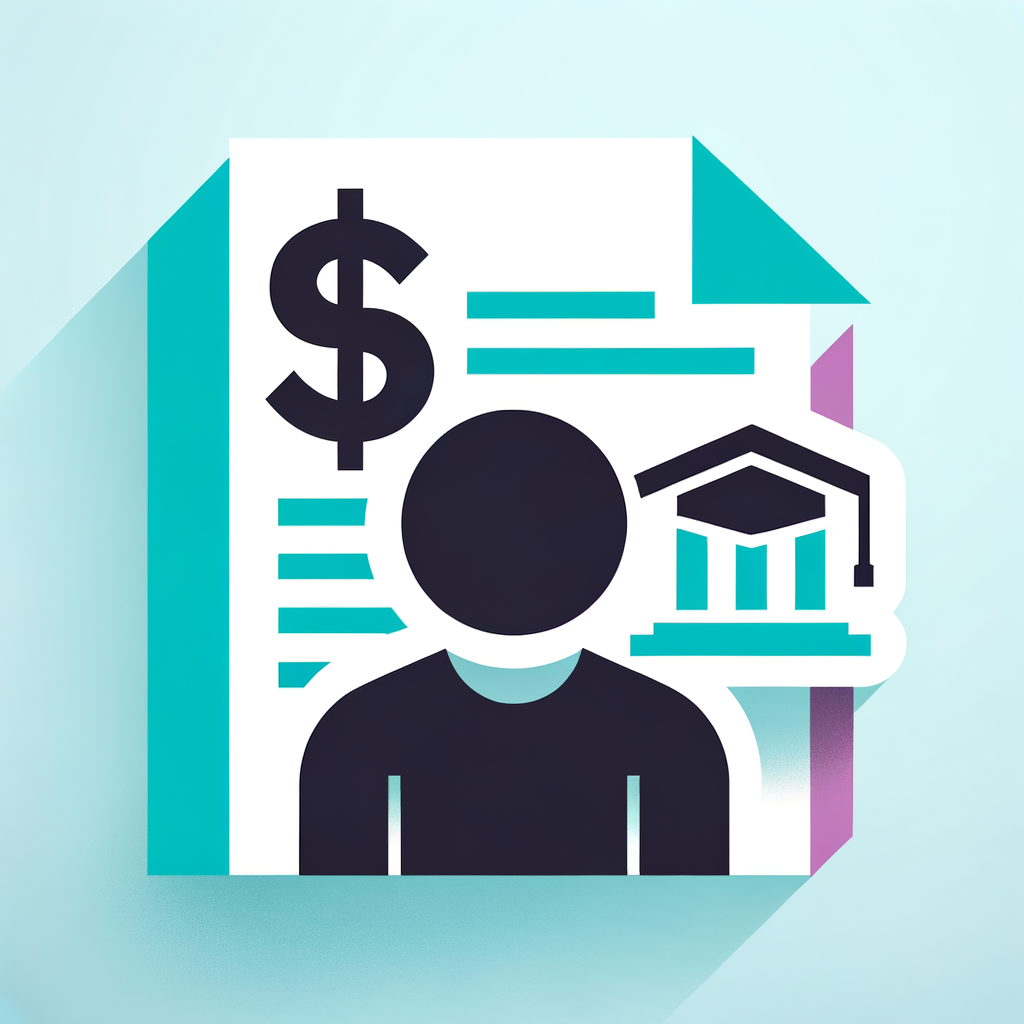Advertiser Disclosure
Last update: November 16, 2024
5 minutes read
Financial Literacy for College Students
Are you prepared to manage your finances in college and beyond? Discover why financial literacy is crucial for students and how it can set you up for long-term success.

By Derick Rodriguez, Associate Editor
Edited by Rachel Lauren, B.A. in Business and Political Economy
Learn more about our editorial standards



By Derick Rodriguez, Associate Editor
Edited by Rachel Lauren, B.A. in Business and Political Economy
Learn more about our editorial standards
In today's complex financial landscape, financial literacy has become an essential skill for college students. As tuition costs rise and student loan debt reaches unprecedented levels, understanding how to manage money effectively is more important than ever. But what exactly is financial literacy, and why should it be a priority for college students?

Key takeaways
- Financial literacy education provides crucial skills for better financial decision-making, especially with respect to student loans and budgeting
- Many colleges, including Stanford, Texas Tech, and George Washington University, offer top-ranked financial literacy programs
- Some states, like Florida, are making financial literacy courses mandatory for high school graduation
The importance of financial literacy for college students
Financial literacy courses can provide significant benefits to students, equipping them with essential skills for managing their money during college and beyond. Here are some key advantages:
- Better financial decision-making: Students learn to make informed choices about student loans, budgeting, and other financial matters
- Improved debt management: Financial literacy helps students manage their money more effectively and avoid accumulating excessive debt
- Reduced financial stress: Understanding financial concepts can alleviate anxiety related to money matters
- Preparation for the future: Students gain skills to handle financial responsibilities and saving after graduation
The current state of financial literacy programs
Many colleges and universities have recognized the importance of financial education and implemented different initiatives:
- Top-ranked programs: Stanford University, Texas Tech University, and George Washington University offer some of the best financial literacy programs in the country
- Campus-wide efforts: Indiana University, for example, has implemented comprehensive financial education programs since 2012
- State-level initiatives: Florida recently passed legislation requiring high school students to take a financial literacy course to graduate

TuitionHero Tip
It's important to note that these programs are not yet universally required or standardized across all institutions and states.
Arguments for mandatory financial education
There are compelling reasons to consider making financial literacy a requirement for college students:
- Reducing loan defaults: Better financial education could help lower student loan default rates, potentially easing the burden on taxpayers
- Ensuring comprehensive education: A standardized curriculum would guarantee that all students receive thorough financial education before and while going to college
- Addressing student preparedness: Many students feel unprepared to manage money in college. In fact, 53% of students in one study said they felt least prepared for this aspect of college life
Potential implementation approaches
If financial literacy were to become an admissions requirement or a mandatory part of college education, there are several potential approaches:
- Requiring a high school financial literacy course for college admission
- Adding financial knowledge questions to standardized tests like the SAT/ACT
- Mandating completion of an online financial literacy module as part of the college application process
Compare private student loans now
TuitionHero simplifies your student loan decision, with multiple top loans side-by-side.
Compare Rates
Challenges and considerations
While the benefits of financial literacy education are clear, implementing mandatory requirements would face some challenges:
- Ensuring equitable access: It's crucial to provide equal access to financial education resources for all students. It can also be challenging to keep the information culturally relevant to all groups.
- Developing standardized curricula: Creating comprehensive, up-to-date financial literacy programs that cover all necessary topics can be a challenge, particularly as everyone faces different financial situations.
- Balancing priorities: Integrating financial literacy education while maintaining focus on other important academic areas


Why trust TuitionHero
At TuitionHero, we help students navigate the financial challenges of college with services like private student loans, scholarships, and refinancing options. We also offer guidance on financial aid and credit card management to help you save money.
Frequently asked questions (FAQ)
Financial literacy education can help you understand different types of student loans, interest rates, and repayment options. This knowledge enables you to make informed decisions about borrowing and helps you develop effective strategies for loan repayment after graduation.
Yes, many universities and financial institutions offer free online financial literacy courses and resources. Websites like Khan Academy and Coursera also provide financial education modules. Additionally, the U.S. Department of Education's Federal Student Aid website offers valuable information on managing college finances.
You can start by talking to your school's administration or student government about the importance of financial literacy. Propose bringing in financial experts for workshops, organizing peer-led study groups, or integrating financial topics into existing courses. You can also share success stories from other institutions that have implemented strong financial literacy programs.
Final thoughts
As the financial world becomes increasingly complex, the need for solid financial literacy grows ever more crucial. By prioritizing financial education, high schools and colleges can empower students to make sound financial decisions, manage debt effectively, and lay the groundwork for long-term financial success.
Whether through formal courses, online resources, or campus initiatives, investing time in improving your financial literacy is an investment in your future. As you navigate your college years and beyond, the knowledge and skills you gain will serve you well in achieving your financial goals.
What steps will you take to improve your financial literacy? Share your thoughts and experiences in the comments below!
Source
- Top 50 College Financial Literacy Programs of 2019 - LendEDU
- 5 Universities that are Tackling the Financial Literacy Crisis
- It's time for colleges to require mandated financial literacy courses
- New Financial Literacy Grad Requirement Can Be Taken Online
- Mandatory financial literacy courses could save college students from debt
- Financial Literacy | Harvard
- Should Schools Teach Financial Literacy Classes?
- Financial Literacy: What College Students Need to Know
Author

Derick Rodriguez
Derick Rodriguez is a seasoned editor and digital marketing strategist specializing in demystifying college finance. With over half a decade of experience in the digital realm, Derick has honed a unique skill set that bridges the gap between complex financial concepts and accessible, user-friendly communication. His approach is deeply rooted in leveraging personal experiences and insights to illuminate the nuances of college finance, making it more approachable for students and families.
Editor

Rachel Lauren
Rachel Lauren is the co-founder and COO of Debbie, a tech startup that offers an app to help people pay off their credit card debt for good through rewards and behavioral psychology. She was previously a venture capital investor at BDMI, as well as an equity research analyst at Credit Suisse.
At TuitionHero, we're not just passionate about our work - we take immense pride in it. Our dedicated team of writers diligently follows strict editorial standards, ensuring that every piece of content we publish is accurate, current, and highly valuable. We don't just strive for quality; we aim for excellence.
Related posts
While you're at it, here are some other college finance-related blog posts you might be interested in.
Shop and compare student financing options - 100% free!

Always free, always fast
TuitionHero is 100% free to use. Here, you can instantly view and compare multiple top lenders side-by-side.

Won’t affect credit score
Don’t worry – checking your rates with TuitionHero never impacts your credit score!

Safe and secure
We take your information's security seriously. We apply industry best practices to ensure your data is safe.
Finished scrolling? Start saving & find your private student loan rate today



